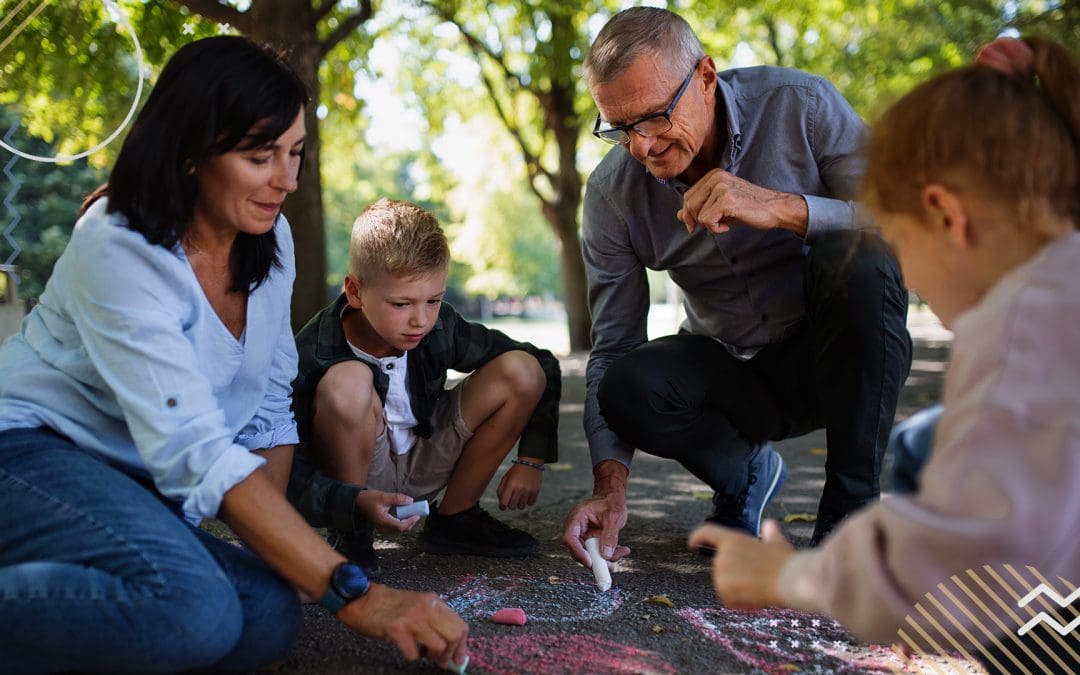Your roles & responsibilities in the PTA
Published on March 6, 2025
Learn more about PTA roles? This section of our guide breaks down key positions, from president to event chair, with responsibilities, skills needed, and pro tips for success.
Every PTA role comes with unique opportunities to support your school and connect with your community. Knowing what your role involves makes it easier to jump in and start making an impact right away.
The key positions in almost every PTA
Each PTA relies on a strong team of volunteers who play a valuable role in the organization’s success. While these may vary somewhat between organizations, here are the ones practically every PTA includes:
- President
- Vice President
- Secretary
- Treasurer
- Fundraising Chair
- Volunteer Coordinator
- Event Chair
- Communications Chair
- Room Parent
For detailed descriptions of each role, see Appendix 1.
General responsibilities & expectations for all roles
While each role has its specific duties, all PTA volunteers are expected to fulfill a few core responsibilities:
- Attend regular PTA meetings.
- Contribute to fundraising and event planning.
- Collaborate with other volunteers, teachers, and school administrators.
- Adhere to PTA bylaws and policies.
Tips for excelling in your chosen role
No matter what you do in your PTA, you’ll have an easier time and be more effective if you follow some basic guiding principles:
- Stay organized: Use calendars, checklists, and reminders to keep track of your tasks. See the Key timelines & checkpoints for new PTA members section of this handbook for more information.
- Communicate clearly: Keep lines of communication open with fellow PTA members and school staff. If you’re using FutureFund, our built-in messaging system can make it easier to reach parent volunteers, alumni, and other community members.
- Be Flexible: PTA work often requires adapting to last-minute changes. Have contingency plans in case your original ideas don’t go quite the way you expected!
- Ask for Help: Don’t be afraid to delegate or seek advice from experienced PTA members.
- Create a succession plan: Eventually, you’ll need to hand your role off to someone else—so you’ll want to set them up for success. This PTA Treasurer transition kit can give you an idea of what to prepare in advance so they can hit the ground running.
- Celebrate Successes: Take time to recognize your achievements and those of your team. Improving your school community is hard work, and you deserve to be proud of what you accomplish together!
Appendix 1
1.1 President
Overview: Primary leadership role; sets the agenda and guides the team.
Responsibilities:
- Presiding over meetings
- Representing the PTA at school and district events
- Overseeing all PTA committees and initiatives
- Ensuring the PTA operates within bylaws
Skills needed: Leadership, communication, organization, conflict resolution
What to expect:
- A significant time commitment—including regular meetings, event planning sessions, and external representation.
- Frequent collaboration with school administrators, teachers, and other PTA leaders to align on goals and initiatives.
- Managing occasional conflicts and balancing diverse opinions within the group.
Pro tips for success:
- Set clear agendas for meetings to keep discussions focused and productive.
- Build relationships with key stakeholders, including school staff and community members.
- Foster an inclusive environment where all voices are heard and valued.
1.2 Vice President
Overview: Support role to the President; often assumes leadership if the President is unavailable.
Responsibilities:
- Coordinating various committees
- Providing direction and leadership for event planning
- Acting as a liaison between the President and committee chairs
Skills needed: Adaptability, teamwork, problem-solving
What to expect:
- You’ll have to balance your leadership responsibilities with supportive tasks—be prepared to step in where needed!
- Frequent communication with committee chairs to ensure alignment with PTA goals.
- Opportunities to lead projects or initiatives based on personal strengths and interests.
Pro tips for success:
- Be proactive about identifying areas where support is needed.
- Develop strong relationships with both the President and committee chairs—this will reduce friction and make coordination easier.
- Keep detailed notes on ongoing projects to step in smoothly when leadership transitions are needed.
1.3 Secretary
Overview: Manages documentation and records for the PTA.
Responsibilities:
- Taking and distributing meeting minutes
- Maintaining member contact lists
- Ensuring compliance with bylaws for documentation
Skills Needed: Attention to detail, writing, organizational skills
What to expect:
- Active participation in all PTA meetings to accurately document discussions and decisions.
- Quick turnaround in distributing meeting minutes to keep members informed.
- Organizing and maintaining official records for easy access during audits or reviews.
Pro tips for success:
- Use standardized templates for consistency in meeting documentation.
- Create a digital filing system to keep records organized and accessible.
- Regularly update contact lists and ensure members receive timely communications.
1.4 Treasurer
Overview: Oversees the financial health and reporting of the PTA.
Responsibilities:
- Managing PTA funds
- Preparing budgets and financial reports
- Ensuring compliance with tax and legal requirements
Skills needed: Financial literacy, organization, accuracy
What to expect:
- Regular bookkeeping tasks, including tracking income and expenses for all PTA activities.
- Preparing detailed financial reports for PTA meetings and audits.
- Collaborating with fundraising committees to ensure accurate budgeting and financial oversight.
Pro tips for success:
- Use financial management software to simplify record-keeping and reporting.
- Maintain clear and transparent financial records to build trust with members and stakeholders.
- Set regular financial review meetings to stay on top of budget updates and adjustments.
Free resources:
1.5 Fundraising Chair
Overview: Plans and executes fundraising events and initiatives.
Responsibilities:
- Researching and proposing fundraising ideas
- Organizing events or campaigns
- Tracking and reporting fundraising results
Skills needed: Creativity, event planning, marketing
What to expect:
- Juggling multiple projects simultaneously, from concept to execution.
- High visibility within the school community, often interacting with parents, staff, and local businesses.
- Managing event budgets and ensuring fundraising goals are met.
Pro tips for success:
- Build partnerships with local businesses for sponsorships and donations.
- Promote events through diverse channels, including social media, newsletters, and flyers.
- Analyze past fundraising efforts to identify what works and areas for improvement.
Free resources:
1.6 Volunteer Coordinator
Overview: Recruits, organizes, and supports PTA volunteers.
Responsibilities:
- Building a volunteer database
- Matching volunteers with tasks
- Providing training or resources
Skills needed: Communication, organization, people skills
What to expect:
- Regular interaction with parents, teachers, and staff to recruit and assign volunteers.
- Addressing last-minute volunteer needs and ensuring coverage for all events.
- Providing clear instructions and resources to help volunteers succeed.
Pro tips for success:
- Keep an up-to-date volunteer list with contact details and availability.
- Create a volunteer handbook or guide with essential information and expectations.
- Recognize and appreciate volunteers regularly to encourage ongoing participation.
Free resources:
1.7 Event Chair
Overview: Oversees planning and execution of PTA events.
Responsibilities:
- Coordinating with the PTA, school staff, and volunteers
- Managing event logistics
- Evaluating event success and gathering feedback
Skills needed: Project management, multitasking, leadership
What to expect:
- On-site presence during events to oversee setup, execution, and cleanup.
- Managing multiple teams, including volunteers, vendors, and school staff.
- Handling unexpected challenges, such as weather changes or last-minute cancellations.
Pro tips for success:
- Create detailed event checklists and timelines to keep tasks on track.
- Delegate responsibilities to trusted team members to avoid burnout.
- Gather feedback after each event to improve future planning and execution.
Free resources:
1.8 Communications Chair
Overview: Manages internal and external PTA communication.
Responsibilities:
- Sending newsletters or updates
- Managing social media accounts
- Promoting events and initiatives
Skills needed: Writing, marketing, creativity
What to expect:
- Regularly creating content for newsletters, emails, and social media platforms.
- Coordinating with other PTA leaders to ensure consistent messaging.
- Monitoring engagement and adjusting communication strategies based on feedback.
Pro tips for success:
- Schedule posts and updates in advance to maintain a consistent flow of information.
- Use eye-catching visuals and concise messaging to boost engagement.
- Stay updated on school policies and events to align communications with current activities.
1.9 Room Parent
Overview: Serves as a liaison between teachers and parents.
Responsibilities:
- Communicating classroom needs
- Organizing classroom parties or events
- Coordinating teacher appreciation efforts
Skills needed: People skills, organization, reliability
What to expect:
- Close collaboration with teachers to understand classroom needs and preferences.
- Managing communication with parents regarding classroom activities and events.
- Organizing and coordinating volunteers for classroom support.
Pro tips for success:
- Be proactive in reaching out to teachers and parents to stay ahead of classroom needs.
- Use group messaging tools or email lists for efficient communication.
- Plan ahead for holidays and special events to ensure smooth execution.
1.10 Special committees & ad hoc roles
Examples:
- Membership Chair
- Advocacy Chair
- Diversity and Inclusion Chair
- Health & Wellness Chair
Responsibilities:
- Specific to the role or committee
- Often project-based with flexible scope
Skills needed: Role-dependent (e.g., advocacy, event planning, data analysis)
What to expect:
- Targeted tasks with clear objectives and timelines.
- Opportunities to specialize in areas of personal interest or expertise.
- Collaborating with the wider PTA team to integrate projects into broader goals.
Pro tips for success:
- Set clear goals and milestones to measure progress.
- Stay flexible and open to feedback to improve project outcomes.
- Build strong connections with other PTA members to foster collaboration and support.







